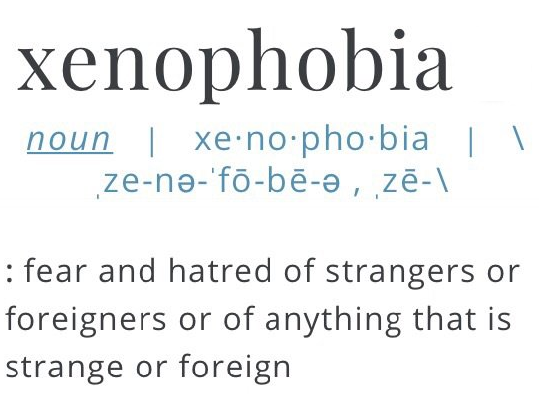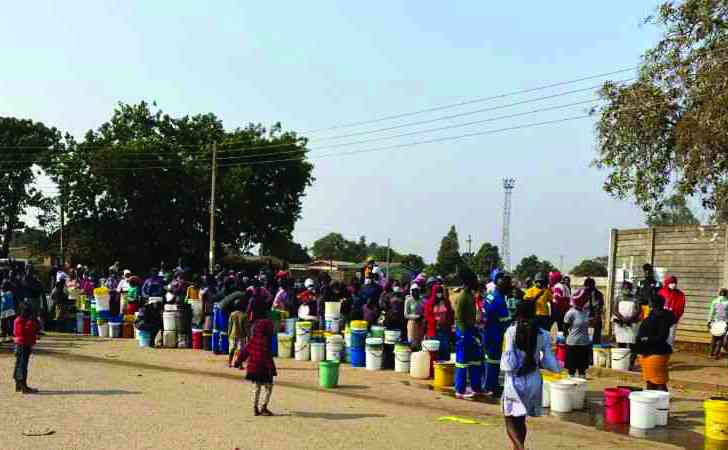
Over the past few weeks, social media has been awash with reports of foreigners both documented and undocumented being driven away from public hospitals in South Africa in the latest wave of xenophobic attacks.
While in the past the attacks often manifested in violence, the agitators have taken a new route, arguing that foreigners cannot be prioritised at public hospitals at the expense of locals.
This is a very emotive issue for both South Africans and foreigners living in that country, which unfortunately will not be solved by academic or historical debates.
I have seen people, particularly Zimbabweans, arguing that their country sheltered South Africans during the struggle against apartheid and they deserve some leeway for the role Zimbabwe played for that country to earn freedom.
While this is true, it does little to assuage the disillusionment many South Africans have at the moment, as they thought the end of apartheid would bring about improved social and economic prospects.
Instead, for those at the margins of society, the end of apartheid has been characterised by growing inequality and the natural human instinct is to blame those who are different from them, in this case foreigners.
Make no mistake, political opportunists have taken advantage of this situation and are using it to score points, without a care of what will happen to the foreign nationals or the vigilantes that prowl public hospitals and clinics.
I am not convinced that there has been an upsurge in anti-foreign sentiment, but what we are experiencing is a result of the algorithm-mediated reality that we live in.
- Mavhunga puts DeMbare into Chibuku quarterfinals
- Bulls to charge into Zimbabwe gold stocks
- Ndiraya concerned as goals dry up
- Letters: How solar power is transforming African farms
Keep Reading
A good chunk of the population receive the bulk of their news on social media. Social media is set up to ensure engagement with content.
The content that drives most engagement is often incendiary and for that reason social media platforms drive that incendiary content to us almost ad nauseum, this is why we are inundated with videos of foreigners being kicked out of hospitals.
Now, even our news media is driven by the desire to compete with social media platforms and this leads to an increase in stories on xenophobia and these vigilante groups such as Operation Dudula and March in March – this phenomenon is known as narrative gravity.
Narrative gravity refers to the tendency for information and interpretations to gravitate towards a dominant, already established narrative.
It can also be referred to as the “bandwagon effect” where information is filtered and understood through the lens of a popular or widely accepted story, even if the facts do not perfectly align.
I am not sure I have seen plausible evidence of an uptick in xenophobia, but rather I have seen more videos on social media and a dominant narrative has been established by social media.
In all this drama and all this emotion, I think we are missing the forest for the trees, as we concentrate on the smaller things and fail to see the bigger picture.
The question we should be asking ourselves is why there are so many foreigners – or to be specific, so many Zimbabweans in South Africa, a good number of them undocumented.
South Africa’s governing ANC has for decades mollycoddled Zimbabwe’s government even when it was clear that Zanu PF had taken a wrong turn that will have an impact on neighbouring countries.
To be honest, South Africa has always been a magnet for foreign workers, whether it was during the gold rush or getting ready for the 2010 World Cup, so migration whether legal or illegal is nothing new.
However, the latest wave of migration is being driven by a collapse in social services in Zimbabwe, which has seen public hospitals being unable to dispense even the cheapest of painkillers.
With an economy that has barely ticked in the past decade, hard-pressed Zimbabweans believe they have no choice but to seek medical attention in neighbouring countries such as Botswana, South Africa and Zambia.
However, public institutions in those countries also have their own burdens to deal with and faced with disillusionment such as in South Africa, this is a powder keg that opens the door to political opportunism, vigilanteism and criminality.
One way of ensuring that Zimbabweans do not overwhelm South African public institutions is for that country’s politicians to be honest with their counterparts in Zimbabwe and restate the importance of good governance.
The issue of sanctions affecting Zimbabwe has been raised a lot by South Africa, but look at how mute the country was when it was time to release the Justice Sisic Khampepe report on elections in Zimbabwe.
South Africa has always prided itself of being the moral compass of the region.
If you are old enough, you will remember how the late Nelson Mandela stood up to Nigeria when the rights campaigner Ken Saro-Wiwa was killed.
Just recently, South Africa was so moved by the Palestinian issue that it took up the case with the International Court of Justice, receiving plaudits from human rights campaigners across the world.
But when it comes to Zimbabwe, suddenly South Africa says it will not resort to megaphone diplomacy and instead quiet diplomacy, which has become a euphemism for inertia.
So, as long as South Africa and other regional countries are dishonest about the situation in Zimbabwe, then they should expect thousands more Zimbabweans to land on their shores as they seek the social services that have become a mirage in Zimbabwe.
On the other hand, Operation Dudula and the like, will continue seeking out foreigners from public institutions, which will be nothing more than a whack-a-mole game, where one foreigner is kicked out of a hospital only to be replaced by another almost immediately.
This is a vicious cycle that will only breed tensions between foreigners and locals and which unfortunately will end in tragedy if left unattended to.
Arrests of these Operation Dudula vigilantes are short term; explaining the economic benefits of migration to someone who does not have a job is futile and deporting foreigners are not the answers.
The reality is that through its political and economic power, South Africa has to lean on and assist Zimbabwe in building and strengthening its economy and institutions for democracy.
As long as the Zimbabwean situation remains unaddressed or as long South Africa continues to half-heartedly engage the authorities in Zimbabwe, then there is no end in sight for this mayhem.
I know this has been said a million times, but there is no harm in repeating that the Zimbabwean situation is a domestic problem for South Africa and it needs to be treated with urgency.









